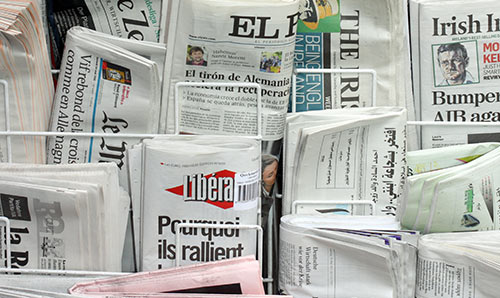Corpus-based translation studies
CTIS researchers use electronic corpora as a resource for studying various features of translation, including the distinctive nature of translated text and the distinctive styles of individual translators.
The nature and pressures of the translation process are bound to leave traces in the language that translators (and interpreters) produce. Some of this patterning has been explained in terms of notions such as simplification (a tendency on the part of translators to simplify the language or message or both) and explicitation (the tendency to spell things out in translation).
Methodology

The kind of methodology available from corpus linguistics offers one of the most effective ways of capturing such distinctive features of translation, because it allows us to study very large amounts of text and identify global patterning that is difficult or impossible to capture through manual analyses.
A corpus of translated text can also be used to study variation in the output of individual translators, the impact of specific source languages on the patterning of the target language, the impact of text type on translation strategies, and various other issues which are of interest to both the translation and interpreting scholar and the corpus linguist.
Our research
Manchester has pioneered the corpus-based approach to studying translation through the establishment of the Translational English Corpus, the largest corpus of translated language anywhere in the world. Another strand of our research uses diachronic corpus studies to investigate the relationship between translation, as language contact, and language change.
PhD projects
- Ashraf Abdul-Fattah (2010) A Corpus-based Study of Conjunction in Arabic Translated and Non-translated Texts Written by the Same Translators/Authors
- Mario Bisiada (2013) From Hypotaxis to Parataxis: An Investigation of English-German Syntactic Convergence in Translation
- David Charlston (2012) Hegel’s Phenomenology in Translation: A Comparative Analysis of Translatorial 'Hexis'
- Wallace Chen (2006) Explicitation through the Use of Connectives in Translated Chinese: A Corpus-based Study
- Carmen Dayrell (2005) Investigating Lexical Patterning in a Comparable Corpus of Brazilian Portuguese
- Gabrielle Hendry: Representations of Translators in the Information Age: An Interdisciplinary Analysis of Industry and Translator Discourse
- Dorothy Kenny (1999) Norms and Creativity: Lexis in Translated Text
- Kyung-Hye Kim (2013) American and South Korean News Discourses about North Korea and Their Mediation via Translation: A Corpus-based Critical Discourse Analysis
- Sara Laviosa-Braithwaite (Sara Laviosa) (1996) The English Comparable Corpus (ECC): A Resource and a Methodology for the Empirical Study of Translation
- Sofia Malamatidou (2013) Translation and Language Change: The Impact of English on Modern Greek, with Reference to Popular Science Articles
- Sally Marshall (2013) The Epistemological Paradox of Translating Autobiography: An Analysis of Experiential Vantage in Translated vs. Non-translated Autobiographies in English and Japanese
- Martha Mutesayire (2005) Investigating Lexical Explicitation in Translated English: A Corpus-based Study
- Peter Skrandies (2007) Metadiscourse in German History Writing and English Translation: A Study of Interaction between Writers and Readers
- Ting-Hui Wen (2009) Simplification as a Recurrent Translation Feature: A Corpus-based Study of Modern Chinese Translated Mystery Fiction in Taiwan
Selected publications
- Bisiada, Mario (2013) 'Changing Conventions in German Causal Clause Complexes', Languages in Contrast 13(1):1–27.
- Olohan, Maeve (2004) Introducing Corpora in Translation Studies, London and New York: Routledge.
- Olohan, Maeve (2003) 'How Frequent are the Contractions? A Study of Contracted Forms in the Translational English Corpus', Target 15(1): 59-89.
- Olohan, Maeve (2002) 'Leave it out! Using a Comparable Corpus to Investigate Aspects of Explicitation in Translation', Cadernos de Tradução IX: 153-169.
- Olohan, Maeve (2002) 'Corpus Linguistics and Translation Studies: Interaction and Reaction', Linguistica Antverpiensia 1/2002: 419-429.
- Olohan, Maeve and Mona Baker (2000) 'Reporting that in Translated English: Evidence for Subconscious Processes of Explicitation?', Across Languages and Cultures 1(2): 141-158.
- Pérez-González, Luis (2006) 'Interpreting Strategic Recontextualization Cues in the Courtroom', Journal of Pragmatics, 38: 390-417
